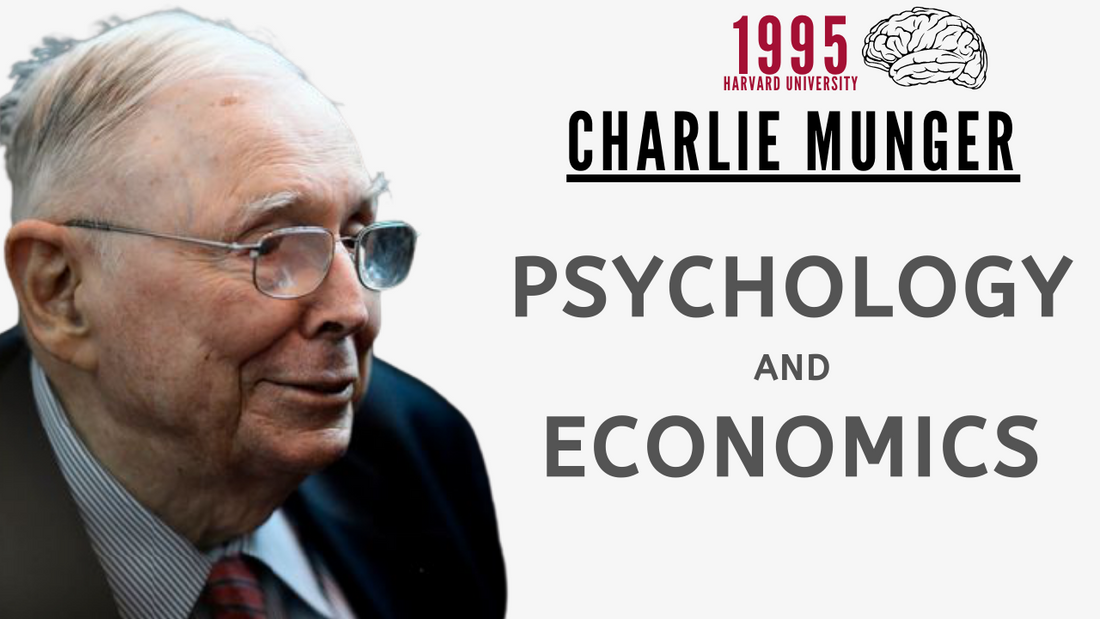
Charlie Munger: Psychology and Economics. | Harvard University 1995【C:C.M Ep.94】
[Transcript]
CHARLIE MUNGER: How should the best parts of psychology and economics interrelate in an enlightened economist’s mind? Two views. That’s the thermodynamics model. You know, you can’t derive thermodynamics from plutonium, gravity, and laws of mechanics, even though it’s a lot of little particles interacting. And here is this wonderful truth that you can sort of develop on your own, which is thermodynamics.
Some economists and I think Milton Friedman is in this group, but I may be wrong on that, sort of like the thermodynamics model. I think Milton Friedman, who has a Nobel prize, is probably a little wrong on that. I think the thermodynamics analogy is over-strained. I think knowledge from these different soft sciences have to be reconciled to eliminate conflict. After all, there’s nothing in thermodynamics that’s inconsistent with Newtonian mechanics and gravity, and I think that some of these economic theories are not totally consistent with other knowledge, and they have to be bent. And I think that these behavioral economics, or economists, are probably the ones that are bending them in the correct direction.
Now, my prediction is when economists take a little psychology into account that the reconciliation will be quite endurable. Here, my model is the procession of the equinoxes. The world would be simpler for a long-term climatologist if the angle of the axis of the Earth’s rotation, compared to the plane of the Euclyptic, were absolutely fixed. But it isn’t fixed. Over every 40,000 years or so there’s this little wobble, and that has pronounced long-term effects. Well, in many cases, what psychology is going to add is just a little wobble, and it will be endurable.
Here, I quote another hero of mine, who of course is Einstein, where he said, “The Lord is subtle, but not malicious.” And I don’t think it’s going to be that hard to bend economics a little to accommodate what’s right in psychology.
The final question is if the thought system indicated by this list of psychological tendencies has great value not widely recognized and employed, what should the educational system do about it? I am not going to answer that one now. I like leaving a little mystery.
(Source: https://youtu.be/07f8oasWqWg)
[YAPSS Takeaway]
Any enlightened soul?😂
